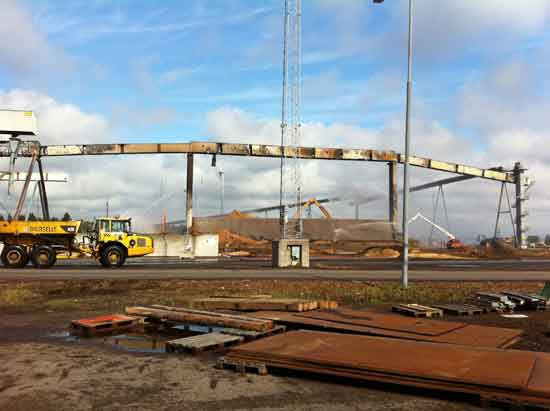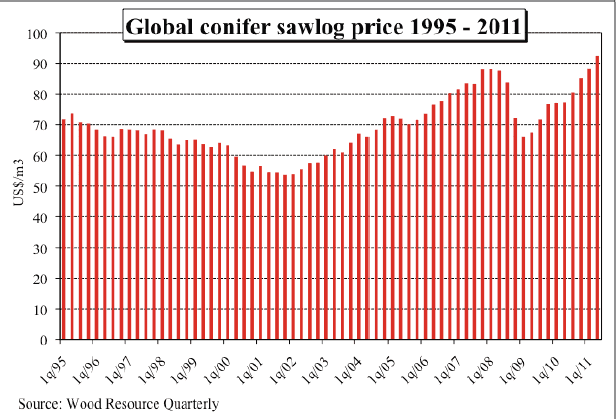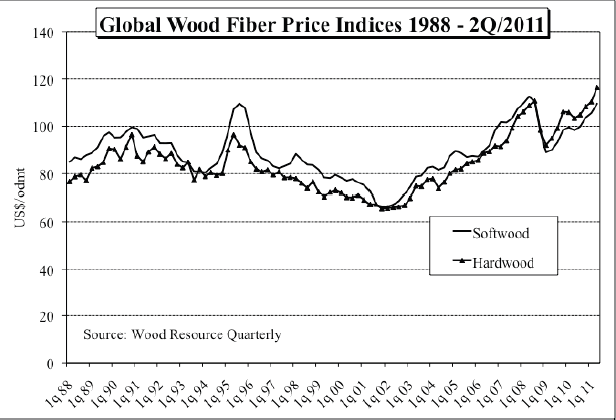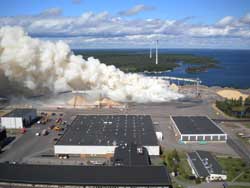Ian Melin-Jones
International Paper and Atlas Holdings LLC to combine
International Paper and Atlas Holdings today signed a definitive agreement to combine their consumer packaging solutions businesses, pending regulatory approval and other customary closing conditions. As a result of the agreement, Shorewood Packaging and AGI World, two leading global specialty packaging companies, will become AGI-Shorewood, creating one of the largest and most innovative specialty packaging businesses in the world with operations in North America, Europe, Asia, Australia and Latin America.
"For more than a decade, Shorewood Packaging has been an important part of International Paper and has made many contributions to our company, particularly through leadership in innovation and creative services for customers," said Tom Kadien, senior vice president of International Paper's Consumer Packaging and IP Asia businesses. "By merging Shorewood with AGI, our employees and our customers will have many more options and opportunities in the future, and we will continue to be a strong partner in those efforts."
"We are excited about this combination, bringing together two businesses with great legacies and creating a new global leader with unparalleled capability to serve the world's premier consumer product, media and entertainment and tobacco companies," said Andrew Bursky, chairman of Atlas Holdings. "We are committed to building the new AGI-Shorewood around the needs of our customers, providing innovation, efficiency and exceptional service through an unrivaled network of global packaging and creative service facilities."
Once the transaction is complete, the new company will employ nearly 4,000 people and will operate 24 manufacturing facilities around the world. In addition, AGI-Shorewood will be a nimble supplier, strategically focused on its key consumer packaging, media and entertainment, and tobacco packaging markets, which include beauty and personal care, cosmetics and fragrance, healthcare and pharmaceuticals, consumer electronics, golf, confectionary and specialty foods and tobacco and specialty gravure.
Mike Ukropina, currently president, Shorewood Packaging, will lead the new AGI-Shorewood organization as president and CEO. The remainder of the AGI-Shorewood leadership team will include:
- Mark Caines, currently CEO, AGI North America, as CEO, AGI-Shorewood North America
- Tony Garnish, currently CEO, AGI Europe, as CEO, AGI-Shorewood Europe
- Lucy Tzou, currently general manager, Shorewood Packaging and IP Foodservice Asia, as CEO, AGI-Shorewood Asia and Global Gravure
- Don Eldert, currently CFO, Atlas Material Holding Corporation, as EVP & CFO, AGI-Shorewood
"AGI and Shorewood are an excellent fit," said Ukropina. "Both companies are made up of extremely talented people who are unrivaled in customer focus and also share a deep commitment to safety, a drive for continuous improvement and a belief in helping people grow and succeed. I'm looking forward to the opportunities that lie ahead."
The merging of Shorewood with AGI reflects Atlas' investment strategy of purchasing and successfully transitioning divisions of larger corporate parents into strong independent companies.
Upon closing of the transaction, Atlas will own 100 percent of the combined AGI-Shorewood business in the U.S. and International Paper will own a 40 percent interest in the combined AGI-Shorewood business outside of the U.S. The various regional transactions are expected to close before the end of 2011.
NewPage to Initiate Downtime at Port Hawkesbury Mill
NewPage Corporation today announced that, based on its assessment of current market and economic conditions, it has decided to take downtime on both paper machines at its Port Hawkesbury mill in Nova Scotia, Canada. The downtime will begin September 10 for the mill's PM1 newsprint machine and September 16 for the PM2 supercalendered machine. NewPage will provide future updates on the mill based on an ongoing review of the situation and economic conditions during the anticipated downtime.
The decision was based on a combination of factors, including unfavorable exchange rates between the U.S. and Canadian dollars and high utility and shipping costs, which have rendered its Port Hawkesbury mill operations unprofitable for more than a year.
The company is announcing its decision now in order to mitigate the potential impact on customers and already has taken into consideration the planned downtime for future scheduling. NewPage expects to fulfill certain pre-existing orders for its supercalendered papers from its mill in Duluth, Minnesota, but does not produce newsprint from any other mill location and therefore will be unable to serve these customers during the downtime.
"Despite the continued dedication and efforts of our team at Port Hawkesbury to drive cost improvements, extremely challenging economic conditions at this location have forced us to make this difficult, but necessary business decision," said George Martin, president and chief executive officer for NewPage.
According to Mark Lukacs, senior vice president, Operations for NewPage, "The Port Hawkesbury mill makes great newsprint, improved newsprint and supercalendered paper for the printing and publishing industries. We have a very dedicated and talented workforce and this downtime is in no way a reflection on them."
To learn more about NewPage Corporation, visit www.NewPageCorp.com.
ANDRITZ to supply stock preparation equipment to SCA Hygiene Products, Austria
International technology Group ANDRITZ has received an order from SCA Hygiene Products GmbH to supply equipment for the expansion of the deinking plant for paper machine no. 4 at its Ortmann mill, Austria. Start-up is scheduled for June 2012.
The scope of supply for ANDRITZ is a complete dispersing and high-consistency bleaching stage (screw press, CompaDis disperser, and high-consistency bleach tower including screw conveyor transport system), rebuild of the low-consistency cleaner plant and disc filter, process pumps, installation, start-up, and training.
The deinked pulp will be used to produce toilet tissue. This investment iand the expansion to a two-loop deinking system will give the mil a significant brightness increase in the tissue grades, which are produced entirely from waste paper. In addition, it will be possible to replace bright waste paper grades currently used with raw materials having lower ash content and further improve the water management of the deinking plant.
Tembec Reaches Settlement with Employees at its Matane, Quebec Pulp Mill
Tembec reached a settlement with its Matane high-yield pulp mill employees who, last night, voted to end the strike. Employees will return to work gradually as of August 22 and operations are expected to resume on September 11. Production at this plant has been suspended since May 10, 2011.
The settlement covers a 7-year agreement that will expire in October 2016.
The plant in Matane employs 143 people, of which 99 are unionized and ships to customers in North America, Europe and Asia. Its production capacity is 250,000 tonnes per annum.
External fire support services leave Södra Cell Mönsterås
The large water cannons are leaving Södra Cell Mönsterås following the fire which broke out on the chip conveyor last Friday. The cannons started to roll out on from the site on Thursday evening (18 August), and the remainder will depart this morning (19 August), returning to the Släckmedelscentralen - SMC - centres in Malmö, Gothenburg and Stockholm from where they were dispatched last week.

Caption: Final extinguishing of the fire at Södra Cell Mönsterås on Thursday.
"This means that all external resources for extinguishing the fire have now been withdrawn," said Michael Bergqvist, leader of the rescue operation and shift manager at Södra Cell Mönsterås.
The rescue services have only twice before dealt with situations on this scale in the county of Kalmar.
"The rescue initiative is the most extensive of its kind in the region since the forest fires in Oskarshamn in 1983 and Påryd in 2009," said Ingemar Idh, leader of the rescue operation and head of rescue operations in the municipality of Mönsterås.
Work is ongoing at the pulp mill at the same time to pave the way for operations to resume. Once hosing down is complete, culverts may need to be emptied for inspection, for example, to determine the extent of the damage.
The Global Forest Industry This Quarter
Global timber markets
The Global Conifer Sawlog Price Index (GSPI) reached a new all-time high of US$92.27/m3 in the 2Q/11 (see graph). This was 5.6 percent more than the previous quarter, and an almost 20% jump from a year ago.

The GSPI has gone up every quarter since the 1Q/09 when the Index was at $66.10/m3. This almost 40% increase in two years is due not only to the weakening of the US dollar against all other currencies in the Index, but also to the higher costs of logs in local currencies.
Global pulpwood price
Wood fiber costs for the global pulp industry have trended upward for over two years. The Softwood Fiber Price Index (SFPI) reached $109.52/odmt in the 2Q/11, a 3.7 percent increase from the previous quarter and a 23% increase from Global Wood Fiber Price Indices 1988 - 2Q/2011 two years ago. In local currencies, fiber prices increased the most in the US Northwest, Western Canada, Russia and Finland. The weakening US dollar against most global currencies resulted in higher fiber prices in all regions covered by the WRQ in US dollar terms.

The Hardwood Fiber Price Index (HFPI) reached a new all-time-high in the 2Q at $116.44/odmt, which was 5.5 % higher than the 1Q/11 and almost 27% higher than in early 2009. Recently, hardwood prices have increased the most in Indonesia, Finland, Russia and Brazil.
Global pulp markets
Global pulp markets continued to be surprisingly strong in the 2Q/11, setting record high prices for most market pulp grades. The NBSK pulp prices ranged between $1010/ton and $1040/ton both in Europe and in North America, while prices in China were around $850- 930/ton. Global production of market pulp was up as much as eight percent during the first five months of this year compared to 2010. The highest increase occurred in Latin America; the gain in Europe was somewhat smaller.
Global lumber markets
Lumber exports from the Nordic countries slowed during spring, and prices fell slightly. The average export prices of lumber from Finland and Sweden have fallen from last fall and were 3-6 percent lower in April than in October of last year.
Lumber production in the US fell by 13 percent from March to April because of slowing domestic demand, and the average operating rate for US sawmills was down to 67%.
With the persistent weak demand for lumber in the US, sawmills in Eastern Canada continue to struggle, as they are so dependent on the health of the US market for their survival. The operating rate so far in 2011 has been only 55% of capacity.
Lumber imports to China continue to set new records. During the first five months of 2011, the importation of softwood lumber was up 72% from the same period last year.
Global biomass markets
Prices for woody biomass, including mill residues and forest residues, increased slightly in all major biomass-consuming regions of the US in the 2Q.
Pellet prices in Europe were unchanged or slightly lower in the 2Q as compared to the 1Q, but the long-term trends are still upward with prices being close to record levels.
Asian demand for biomass energy is finally beginning to emerge. Japan, China and South Korea has recently announced policies to increase the use of biomass.
New condition monitoring system at Gold East Paper
For their mill in Dagang, China, Gold East Paper decided in favor of the advanced OnV ConditionMonitoring system from Voith which monitors bearings. It is installed at the mechanical pulping line of the stock preparation and helps to prevent unplanned machine downtimes.
The system consists of 166 new vibration sensors. The vibration measurements are processed enabling analyses and diagnoses for early detection of bearing damages. An extension of the sensor assembly by 25 vibration detectors is planned to monitor further bearings. The new monitoring system will provide optimal availability of the machine and thus save costs.
After years of good cooperation and experiences, Gold East Paper is again putting its trust in Voith. The reliability of the already installed condition monitoring systems in the PM 3 and the offline coating machine 2 also contributed to their decision.
Gold East Paper was established in 1997 as a greenfield mill and currently became one of the largest manufacturers of art paper worldwide. The mill compound is approximately six square kilometers, has three paper machines and two offline coating machines. It is located at Dagang, Zhenjiang City in the Jiangsu Province which is aside of the Yangtze River, China's largest river.
SCA notches up 10 years in the Antarctic
 SCA in New Zealand has now been supplying the Scott Base on Antarctica with Tork hygiene products - such as toilet tissue and hand towels - for 10 years.
SCA in New Zealand has now been supplying the Scott Base on Antarctica with Tork hygiene products - such as toilet tissue and hand towels - for 10 years.
The company has retained the Antarctica contract because Tork products perform well and adhere to the strict requirements of the Scott Base.
“Using New Zealand-made products from a sustainable and renewable source is important to our operation and SCA products fit well in this area,” says Michael Nottage, procurement officer for Scott Base.
“This had a significant impact on our decision to continue to use SCA products.”
He said SCA originally won the contract on its environmental profile and trusted quality brand along with the company’s compliance with the New Zealand government’s sustainable procurement initiative.
The Scott Base mainly provides services and accommodation for research parties. The selection of products and tissue is carried out carefully to help reduce waste and storage.
The Antarctic environment is very fragile and no waste stays on the ice: instead it is shipped back to New Zealand for recycling or disposal. The base also has its own wastewater treatment plant so all products need to be highly degradable.
All supplies to the Antarctica base – from food and drinks to car parts and toilet tissue – is shipped in only once a year in January from Christchurch, New Zealand.
SCA injects £15 million into UK tissue mill
SCA has invested £15 million in new state-of-the-art equipment at its Tyne Valley production site.
The move will inject vital funding into the local economy while securing jobs and creating new employment.
The £15 million has been used to fund two separate projects. The first is a new production line that enables SCA to produce Tork zigzag-fold towels in the UK for the first time. This will significantly cut down on transport emissions when delivering Tork zigzag-fold towels to UK customers - a move that will result in major carbon footprint reductions throughout the supply chain.
The second project concerns a new de-inking plant which will increase the capacity of recycled tissue fibre in the UK. Tony Richards, factory and site manager at Prudhoe, said: “This project is the latest in a long line of key investments designed to improve efficiency to ensure that we remain on a path towards achieving a long-term, sustainable future for the mill.
“This will in turn help to provide new employment and keep existing jobs safe while providing support for the local economy.” The well-known Triple Velvet and Asda Shades brands of toilet tissue are manufactured at Prudhoe mill.
Kevin Starr, SCA sales director UK and Ireland, said: “Our new de-inking plant will increase the amount of recycled fibre being produced in this country. Meanwhile, our new manufacturing facility will help to reduce the carbon footprint involved with supplying Tork zigzag towels to customers. This underpins our recently-launched ‘A sustainable choice is in your hands’ campaign.”
Prudhoe mill has a range of accreditations including ISO 14001, ISO 9001, FSC and BRC. In 2008 the mill won an Environmental Management Award at the North East Business Awards competition.
The fire at Södra Cell Mönsterås is now considered to be under control.
 "We will be concluding the formal rescue work during the afternoon," said Ingemar Idh, who has headed up the rescue and fire-fighting operations.
"We will be concluding the formal rescue work during the afternoon," said Ingemar Idh, who has headed up the rescue and fire-fighting operations.
At its peak, some 50 people from 10 rescue services took part in helping to put out the fire. SCM resources from Malmö, Gothenburg and Stockholm were called to take advantage of their substantial pump capacity. Five helicopters have been used to drop water on the fire, two of which came from Norway.
On Wednesday, the leaders of the rescue operation decided that formal firefighting efforts could be concluded.
"The buildings that we protected are not in the risk zone, and so Södra Cell will be taking over responsibility for the ongoing operation. But the high-powered water cannons from SCM will be here until Friday night, and the Mönsterås rescue services will also continue to manage the rescue operation," said Mr Idh.
Intensive work is in progress to recommission the mill, although this process is unlikely to be complete until early September. Cleanup work and inspection of the shaker shoe and belt conveyors is in progress. Damping down and inspection of the sawdust heaps are ongoing, and charred chips damaged by the fire are being removed.
An investigation is in progress into the cause of the fire. "This will allow us also to decide whether there are any shortcomings in our procedures and to rectify any that we find," said Carsten Wieger, site manager for Södra Cell Mönsterås.
